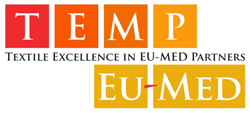Cooperation in textiles
Europe and Mediterranean Partner Countries (MPCs) form a historical association. Financially and socially advantageous for them to work together there is no need to source materials from further afield. Fostering this association was the EU's 'Textile excellence in EU-MED partners' (TEMP) project. TEMP was a six-member capacity-building project, running from the end of 2010 to the end of 2012. It aimed to develop cooperation between Italy, Portugal and Tunisia, and to strengthen these countries' technical competence in textile technologies. Being a coordination project, team members focused on linkage outcomes rather than patentable technologies. An ambitious mobility programme was established to facilitate the exchange of researchers and technical staff between European and Tunisian centres. As a result, the project defined research priorities and an innovation roadmap tailored to the region's textile interests. These plans focused on integrated cooperation and resulted in the exchange of environmental knowledge and best practices in energy. This promises to have an impact in the leverage of MPC companies towards European standards of sustainable production. An important outcome was the agreement to provide a future joint service offer between one particular partner and different European R&D centres also involved in the project. TEMP's dissemination programme consisted of local and international events, as well as publications and brochures and posters. The project developed two websites: an institutional project website(opens in new window) and another facilitating cooperation. The result was greater collaboration and coordination among project partners, leading to successful achievement of the project's goal to develop technical capacity in the region's textile industries. This should result in greater competitiveness for relevant small and medium-sized enterprises and stronger cooperation with European companies.



